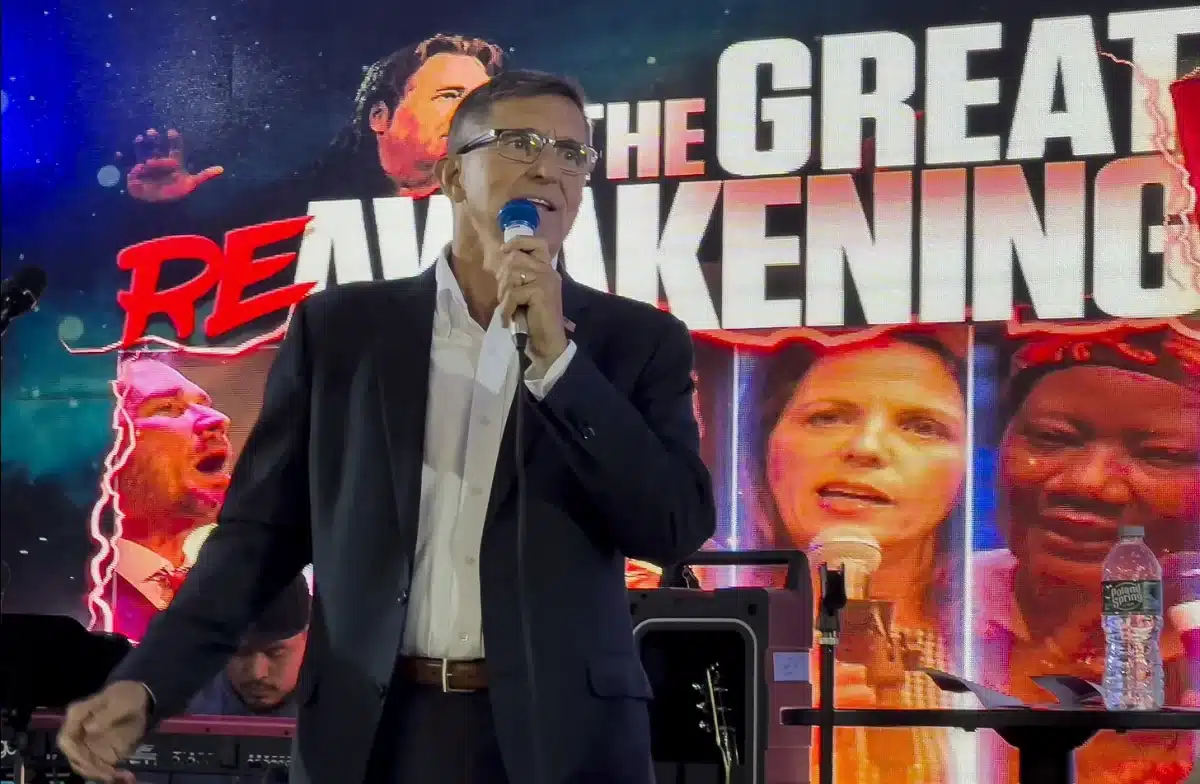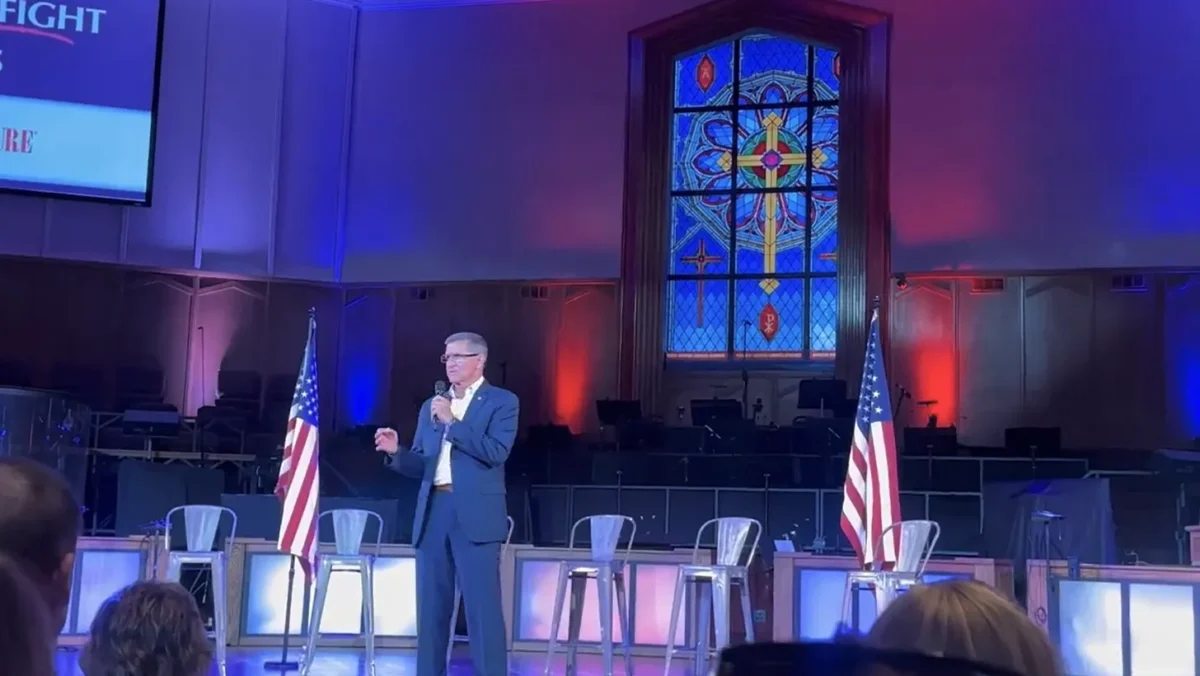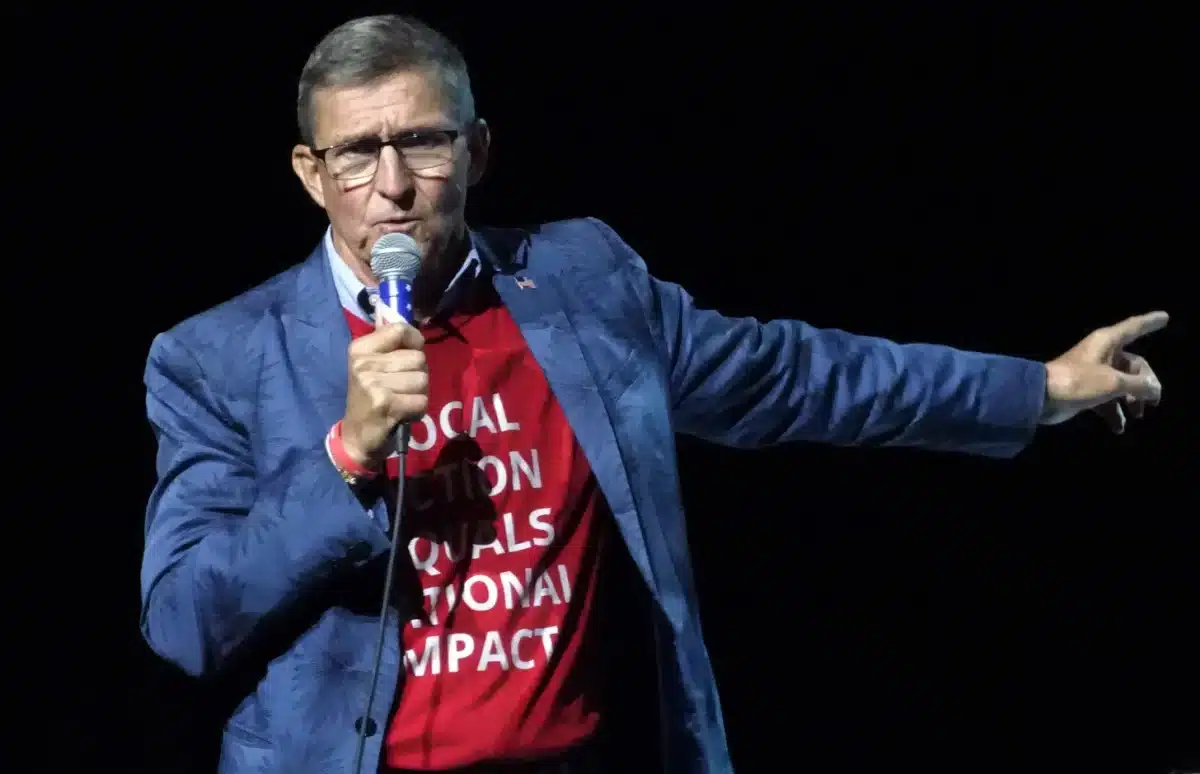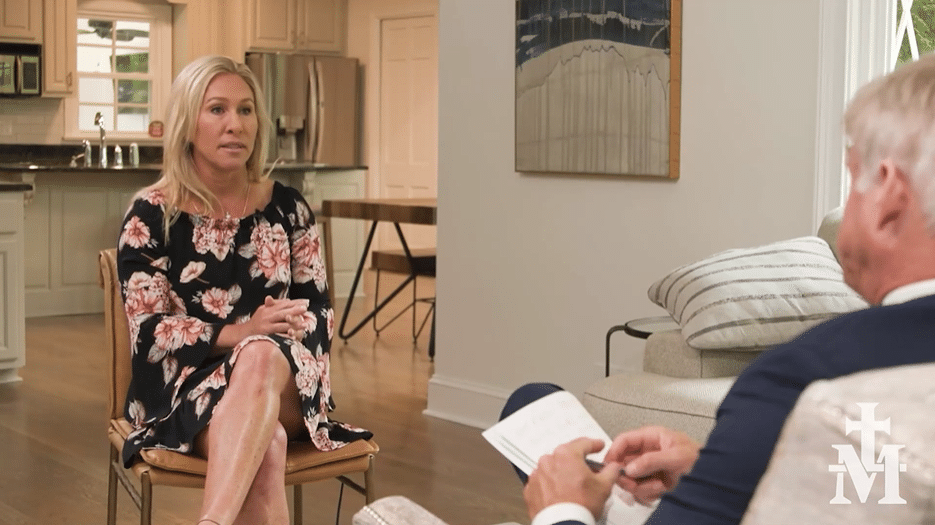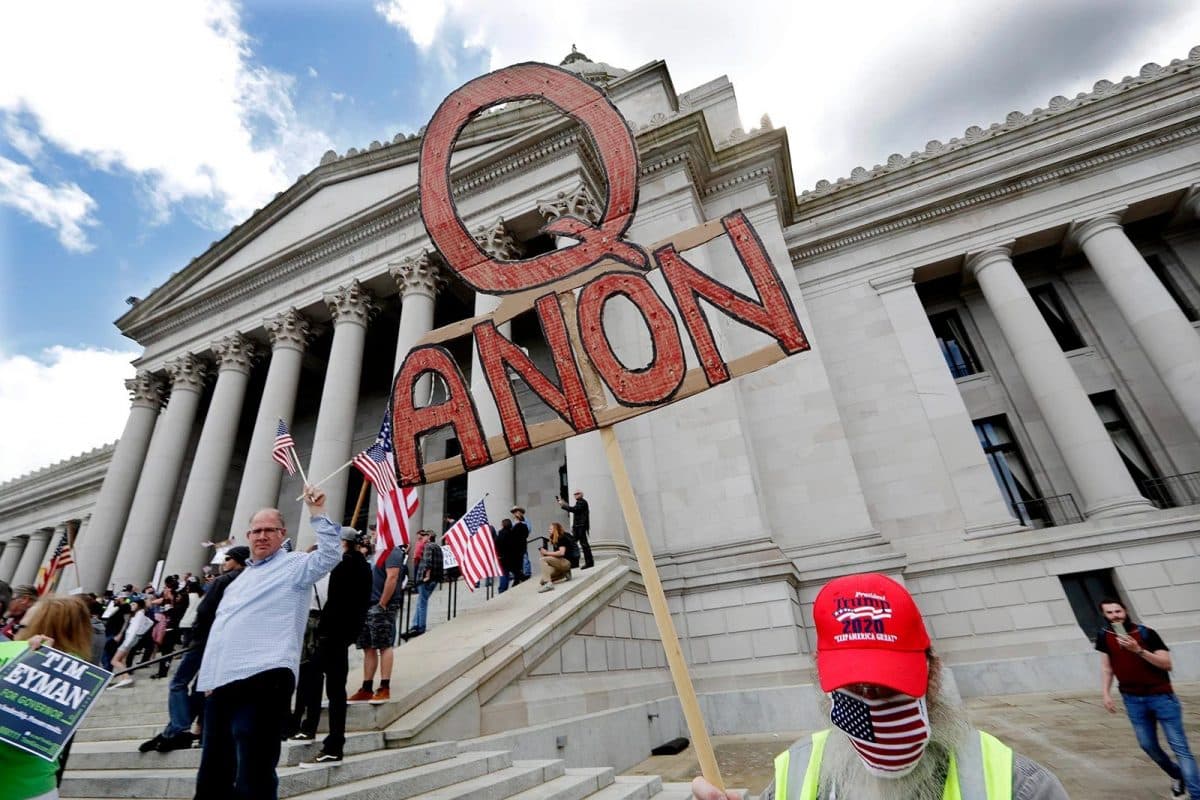‘Flynn’ Portrays the Christian Nationalist Evangelist’s Fight With the Deep State
A new film omits details of Flynn's career, including his pardons issued by his former boss, Donald Trump, and the existence of a network of conspiratorial websites and companies, with names like “Digital Soldiers LLC,” a term used by QAnon.

